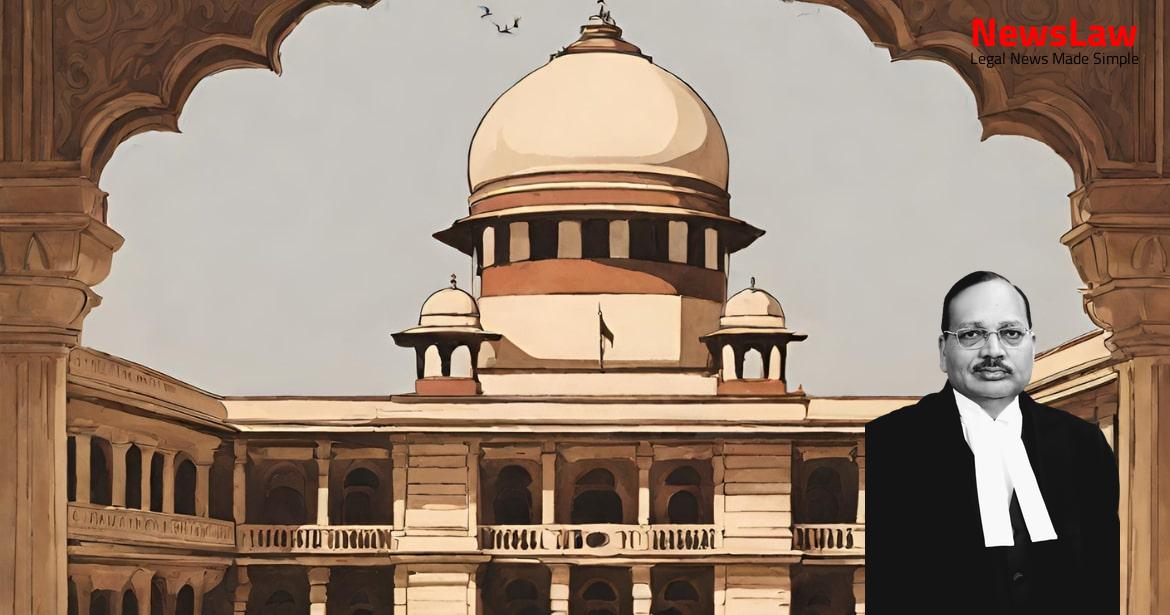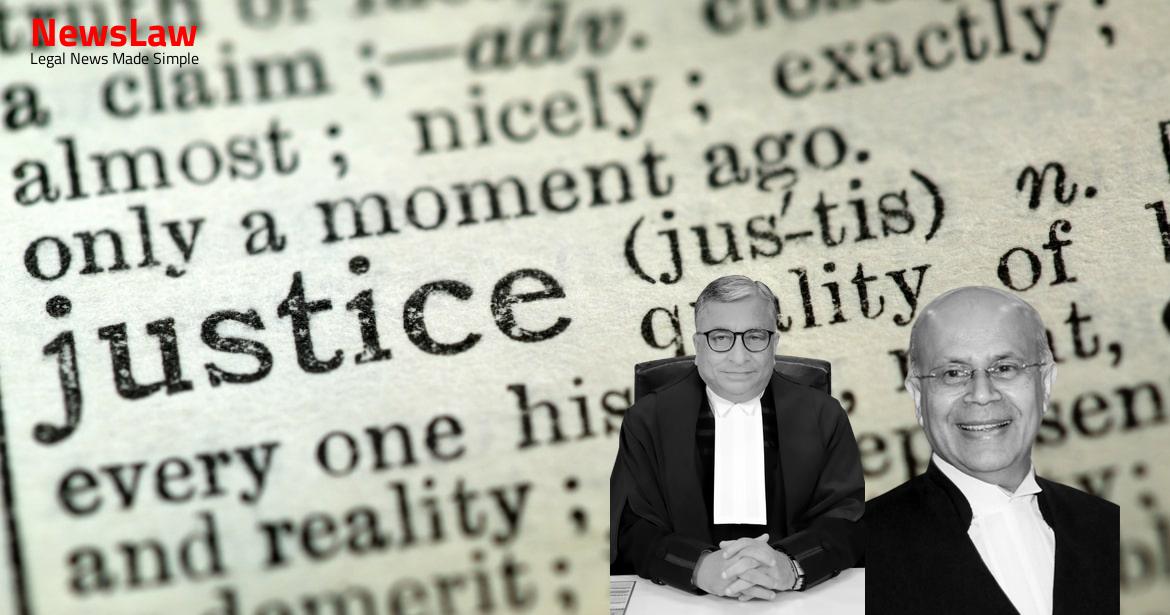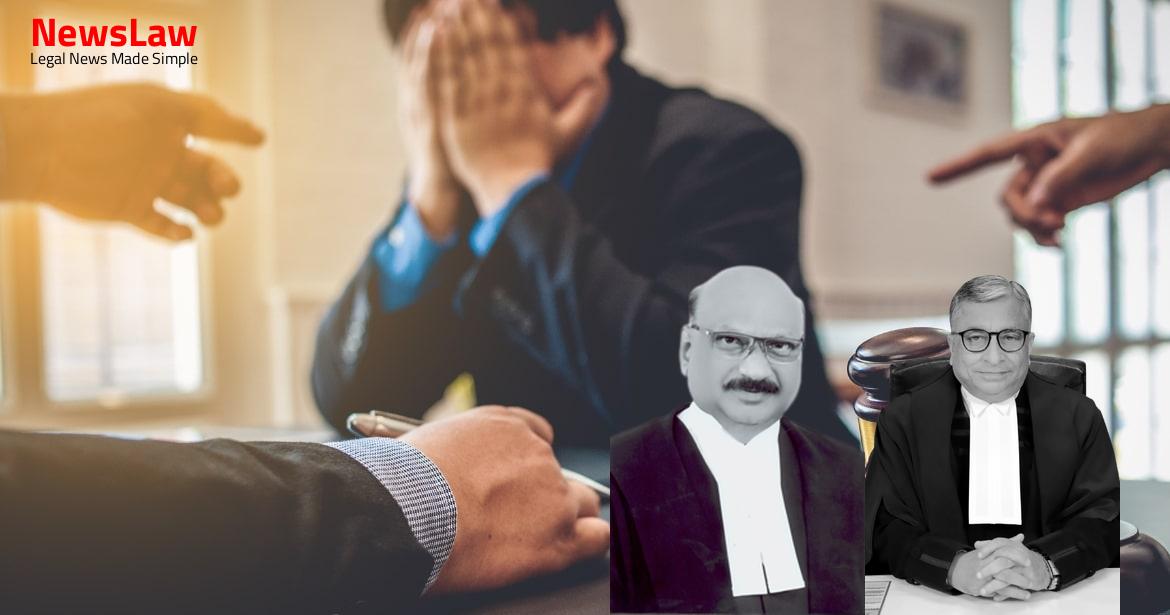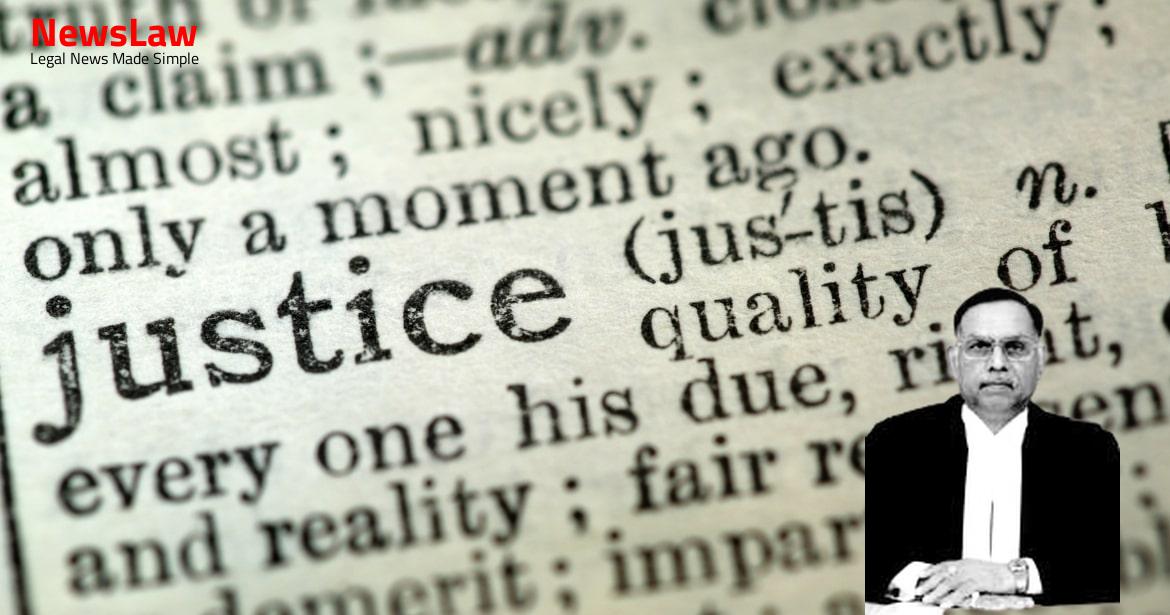The recent legal case delved into the complex issue of bail decisions, focusing on the delicate balance between the gravity of charges and the timely completion of trials. The Court’s in-depth legal analysis highlighted the importance of ensuring a fair trial while upholding the right to liberty. This blog post explores the nuances of the Court’s reasoning and sheds light on the implications of such decisions in the legal landscape.
Facts
- Union of India appealed against the grant of bail to the respondent by the High Court of Kerala at Ernakulam.
- The attack on Professor TJ Joseph was part of a larger conspiracy involving meticulous pre-planning, numerous failed attempts, and use of dangerous weapons.
- The respondent was granted bail for offenses under various sections of IPC, Explosive Substances Act, and UAPA.
- The attack on Professor Joseph was in retaliation to an objectionable question in a Malayalam question paper framed by him.
- The respondent, associated with the Popular Front of India (PFI), was one of the main conspirators in the attack.
- The attack involved forcefully intercepting the victim’s car, chopping off his right palm, and hurling country-made bombs to create panic.
- The respondent was declared an absconder and separated for trial due to being untraceable.
- Several dozen persons, including the respondent, were arraigned in the case.
- The respondent, after spending nearly five years and five months in judicial custody, approached the High Court for the third time seeking bail.
- The High Court emphasized the need for an expeditious trial under the National Investigation Agency Act, 2008.
- The High Court noted that keeping the undertrial-respondent in custody for too long when the trial was not likely to commence soon would cause him serious prejudice and suffering.
- The respondent could be arrested only on 10.04.2015 and is now facing trial after a chargesheet was re-filed by the National Investigation Agency.
- The respondent made six bail pleas between 2015 and 2019 based on his limited role in the offence and seeking parity with other co-accused who had been granted bail or acquitted.
- Bail was previously declined to the respondent as it was believed that he had prior knowledge of the offence, assisted in facilitating the attack, arranged transportation and shelter for the perpetrators, and provided medical assistance after the incident.
- The Courts found that the bar against grant of bail under Section 43-D (5) of the UAPA was applicable in this case.
Also Read: Analysis of Suppression of Information in Employment Selection: Legal Perspective
Arguments
- The learned Senior Counsel appearing for the respondent emphasized that many co-accused have been acquitted, and those convicted received sentences of not more than eight years.
- The respondent has already suffered almost five-and-a-half years of incarceration without the trial commencing.
- The Learned Additional Solicitor General for the appellant argued that the High Court’s bail grant overlooked the statutory conditions of Section 43-D(5) of UAPA.
- Referring to the case National Investigation Agency v. Zahoor Ahmad Shah Watali, it was stated that bail under special enactments should be refused if the suspect is believed to be guilty prima facie.
- It was contended that previous rounds in the Special Court and the High Court indicated prima facie guilt of the respondent based on the accusations.
- The appellant’s representative argued that the respondent’s absconding for years raises legitimate concerns about his return if granted bail, which would potentially violate the respondent’s Constitutional rights by having him serve most of the sentence without a judicial determination of guilt.
Also Read: Analysis of Cheating and Forgery in Passport Case
Analysis
- Bail once granted by the trial Court can only be cancelled by the same Court in case of new circumstances or evidence.
- Superior Courts’ discretion in bail matters should be respected, except in exceptional circumstances.
- Courts need to decide if an individual should be released pending trial for an effective trial and to mitigate risks to society.
- The right to liberty under the Constitution includes access to justice and a speedy trial.
- Undertrials cannot be detained indefinitely pending trial.
- Courts can grant bail, overriding limitations under special enactments, to ensure speedy trials and access to justice.
- Reasons must be recorded when deciding a bail application without evaluating evidence on merits.
- Stringent provisions in special legislations like UAPA can be justified based on the nature of the crime.
- Gross delays in case disposal can lead to invoking Article 21 for undertrials.
- Accused in cases like TADA or NDPS Act were granted bail when in jail for an extended period with little trial completion possibility.
- The High Court justified the release of the undertrial on bail citing gross delay in case disposal and invoking Article 21 of the Constitution.
- The Court noted the seriousness of the charges but emphasized the need for a timely trial and the prolonged incarceration of the accused.
- Statutory restrictions like Section 43-D (5) of UAPA should not be the sole basis for denying bail if the trial is unlikely to be completed within a reasonable time.
- The Court intervened and cancelled the bail as it was premature and might have prejudiced the trial.
- The judgement highlighted the importance of balancing the seriousness of charges, period of custody, and likelihood of trial completion in bail decisions.
- There is a distinction between considerations for granting bail and cancelling bail, with strict criteria for interfering with the discretion of lower courts.
- Under the UAPA, there is no requirement for the Court to be satisfied that the accused is not guilty or is unlikely to commit another offence while on bail.
- Section 43-D (5) of UAPA provides an additional ground for the Court to refuse bail, alongside considerations such as the gravity of the offence, tampering with evidence, influencing witnesses, or the accused evading trial.
- The Court declined to interfere with the impugned order in light of the discussed considerations.
Also Read: Discrepancy in Date of Birth: Court’s Legal Analysis
Decision
- If respondent violates bail conditions or tampers with evidence, bail will be cancelled.
- Respondent must not enrage communal sentiments.
- Imposition of additional condition: Respondent must mark presence weekly at local police station on Mondays at 10 AM and provide written confirmation of no new crimes.
Case Title: UNION OF INDIA Vs. K.A. NAJEEB (2021 INSC 50)
Case Number: Crl.A. No.-000098-000098 / 2021



